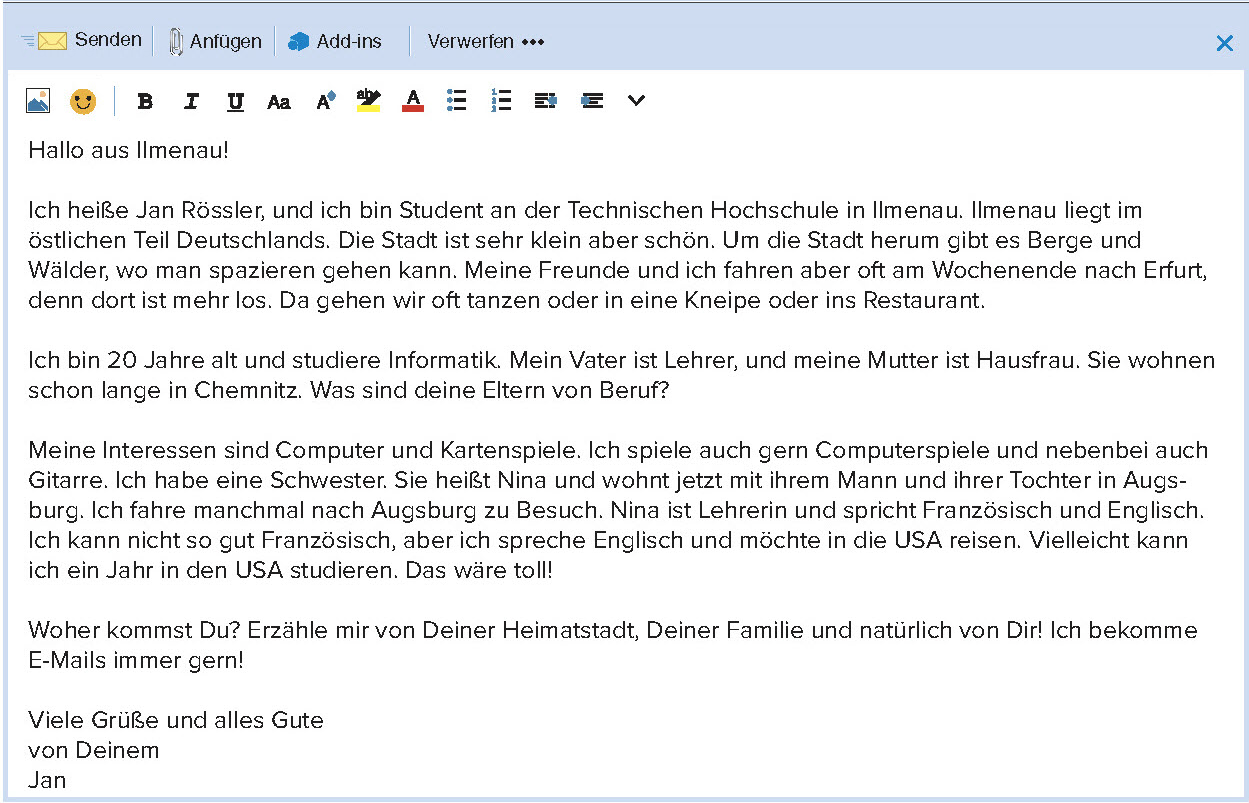Read the following summary of cultural information from “Capítulo 10”, then answer the questions.
Los países andinos cada vez son destinos turísticos más populares para los visitantes del extranjero. Una opción que se enfoca en los recursos naturales junto con la cultura local del área es el ecoturismo. El ecoturismo se caracteriza por la importancia que le da a la conservación del medio ambiente a la vez promoviendo un turismo que le permite a uno disfrutar de la naturaleza regional. Bolivia es un país ideal para practicar el ecoturismo, ya que tiene más de 60 áreas protegidas como rutas por el altiplano, la Cordillera de los Andes, el Lago Titicaca y los bosques amazonas. En estos lugares se puede practicar deportes, observar la flora y fauna nativa e interactuar con la gente aymará e inca que todavía habita la zona.
En Ecuador también se puede disfrutar de la belleza natural, como la biodiversidad que se encuentra en las Islas Galápagos. Ecuador es un destino atractivo tanto por su diversidad natural como por los precios bajos. Se puede visitar numerosas playas bonitas, ciudades históricas, bosques y montañas durante hasta noventa días sin necesidad de visado, y también con el dólar estadounidense, el cual es la moneda oficial de Ecuador.
Las poblaciones indígenas y los descendientes de europeos y africanos contribuyen a la riqueza cultural de los países andinos. Los quechuas, uno de los grupos indígenas más grandes, conservaron su lengua nativa, el quechua. El quechua es uno de los idiomas oficiales de Bolivia y de Perú y lo hablan también en las zonas andinas de Chile, Argentina y Colombia. Para muchos indígenas andinos, el quechua es la lengua materna y el español es la segunda lengua. En algunos casos debido a los Andes y la dificultad de comunicarse entre las regiones, el quechua es el único idioma que hablan. Algunas palabras en inglés y español vienen del quechua. Por ejemplo, en español champa y choclo y en inglés, condor, llama, puma y quinine derivan del quechua.
¿Cuál es una de las lenguas indígenas más importantes de los países andinos?
el quechua
You might also like to view...
Imperfetto. I tre amici continuano la loro conversazione sulle loro tradizioni familiari. Completa le frasi con la forma corretta dell’imperfetto del verbo tra parentesi.
Esempio: Per Pasqua noi mangiavamo (mangiare) le uova. Alberto: Io ____________________ (regalare) sempre cose piccole ai cugini, ma non ai miei zii.
Praise is not the same as flattery. When we flatter someone, we use excessive compliments that are insincere in order to ingratiate ourselves to that person. When we praise, our compliments are in line with the behavior or accomplishment. We express only admiration that we genuinely feel. For praise to achieve its goal and not be perceived merely as flattery, we need to focus the praise on the
specific action and make sure that the message is worded so that it is in keeping with the significance or value of the accomplishment or behavior. If a friend who tends to be forgetful remembers to return a pair of pliers he borrowed that same day, that is a behavior that should be praised so that it is reinforced. But saying, "You're so wonderful, you're on top of everything" reinforces nothing because it is an overly general statement that does not identify a particular behavior or accomplishment. Overly general statements can be perceived as flattery. Gushing "Oh, you remembered to return the pliers! I'm so grateful. That was just unbelievably thoughtful of you" is overkill that will be perceived as insincere. Simply saying something like "Thanks for returning the pliers today; I really appreciate it" would be appropriate. A response like this acknowledges the accomplishment by describing the specific behavior and the positive feeling of gratitude that the behavior has caused. What is the organizational pattern used in the second paragraph? a. generalization and example b. comparison c. time order d. classification
Select the letter of the complete subject and the complete verb in each sentence
We found the answer. A) found, answer B) we, found C) we, answer
Jan möchte in die USA reisen.

DAS STIMMT or DAS STIMMT NICHT